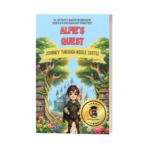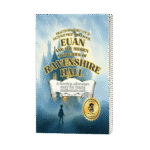Not a day goes by where newspapers talk about a crisis in schools – behaviour, teachers leaving the profession, funding issues… It can fill you with worry as a parent. After all, unless you’re reading this and currently have the job title of Secretary of State for Education of the United Kingdom, there are limits to what you can do to change things. What is in your power, however, is taking the time to find the right school for your child once they are ready to make that leap from primary to secondary. You might have already thought about that and spotted some of the impressive performance tables for selective grammar schools. If so, read on. We’ve put together this guide to help you get started. Read on for our year-by-year 11-plus preparation timeline for parents.

The 11+ Exam for UK Grammar Schools: Some Basics
If you are thinking about a selective grammar school for your child, they’ll need to pass the 11-plus exam. It’s worth noting that these exams differ from private school 11+ entrance exams.
While the website covers both, this article will focus purely on the state grammar admissions exam.
Depending on where you live in the UK, the exam can look slightly different as each county sets its testing criteria. However, it generally covers maths, English, and verbal and nonverbal reasoning.
However, here’s something every UK county has in common: competition for places is fierce. Many children will be applying for places at these prestigious schools.
In other words, some preparation work is essential. Start early, and take the time to navigate the exam landscape. We’ll give you a timeline in this guide, which you can use as a template. But if your child is already in year 5, don’t panic – many parents are in the same boat.
Apply this guide to your timescales, but be realistic about what your child can prep for in the time they have.
Early Preparation (Years 3 and 4)
Early preparation isn’t mandatory. But it can be helpful to start early to avoid a last-minute rush to ensure your child has covered every topic.
These early years are your chance to nurture a strong foundation in reading and arithmetic. Focus your time on making these subjects engaging for your child, which will help boost their confidence and natural curiosity.
Here are some tips you can try:
- Read to your child: Even if your child is an excellent independent reader, you should still try this tip. Choose books that are slightly beyond your child’s reading age and read aloud to your child. Once you come across an unfamiliar word, take the time to talk about it and explain what the word means. It’s a nifty way to help expand their vocabulary. Discussing the story afterwards is also a good way to sharpen their comprehension skills.
- Play some board games: A game of Scrabble is ideal for widening your child’s vocabulary and spelling—keep a dictionary handy! Or play Monopoly and get your child to act as the banker to sharpen their arithmetic skills.
- Practice times tables: Speed is important with the 11+ maths test, and the best foundational work here is on the timetables. You can practice these during quiet times in the home or car with a rapid-fire answering challenge – keep a reward handy as an added incentive.
- Early-stage workbooks: There are 11 plus workbooks specifically designed for years 3 and 4. At Smarty Panthers, we have an early-stage workbook for basic English and Maths (Ava’s Adventures on Maths Island and Alfie’s Quest in Riddle Castle).
It’s important to cultivate a positive learning environment for this age group. You want your child to remain curious and engaged and not feel like they have been set a homework chore. Here are some simple ways to do that:
- Choose a consistent timeslot each week for learning at home, and start off with something fun, like a puzzle.
- Create a dedicated learning space for your child. You don’t need a separate study for this. A little table in the corner of the living room is fine. Make it bright, and add a little shelf where they can store stationery.
- Incorporate learning into fun activities. Introduce maths via baking cookies, try a word treasure hunt around the house or collect items on a walk to add to a data table.
Intermediate Preparation (Year 5)
Most children begin preparations for the 11+ in year five. Here, you’ll want a routine that’s a bit more structured and covers much of the breadth of the 11+ syllabus (which isn’t too dissimilar to KS2).

Creating a Study Routine
Getting into a regular routine will really help keep your child focused when you get into year 5.
This doesn’t have to be intensive, but it’s about developing good habits. So whether you feel you need 5 minutes a week or 5 hours, be consistent and choose the same time and day each week.
This approach means you won’t get into a battle with your child by suggesting some study time right at the point where they are just about to start playing a video game or watching their favourite TV programme. Again, a dedicated study area is really helpful at this stage. If you haven’t set one up yet, get your child’s input on designing a study space that they love.
Think About Your Exam Strategy
Your job as a parent is to ensure your child allocates their study time effectively. So, you want to ensure they have study sessions that cover each of the 11-plus topics. Balance is key here. While some schools take an overall score, others (usually the most competitive) will want a consistently high score on each paper.
Thus, if you have a maths whiz in your house who isn’t keen on English, you want to ensure you are focusing your time on those gaps so they can get through the verbal paper with as much ease as they’ll experience with a page full of sums.
If you are planning to tutor your child, this is the point where you’ll need to think about some guidance on different topics. For example, how can your child begin to break down a complex question into more manageable steps and how can they interpret awkwardly worded questions?
Ensure your child gets plenty of practice in different question styles. With Maths, for example, some children thrive on mental arithmetic but then find themselves flummoxed with a long-worded maths challenge.
Focus on Balance and Wellbeing
Maintaining a balance is crucial at this stage. It will differ for every child. Some children will love practising questions, and others won’t. However, all children need to learn how to balance study time with play and relaxation.
Invest as much in that relaxation time as you can and choose the activities your child already loves, whether that’s football, cycling, video games, swimming, art, reading, or anything else that tops their list.
You may want to try some mock papers with your child during year 5, but don’t get too involved in the scores they are getting. It’s probably best to keep results to yourself at this stage to alleviate any pressure on them. Instead, use mock papers to identify weak spots so you can focus your study time on those areas.
Final Stretch Up to the Exam: (Summer Holidays and Year 6)
Once you get a date for the 11-plus exam, mark that in the calendar so you can ensure the prep works back from that end date. This final stretch includes the year 5/6 summer holiday, as most of the exams take place early in the Autumn term once your child is in year 6.
The goal for this final stretch is to focus on more intensive revision, including some mock tests. But there is another vital element: mental preparation.
Revision Time
At this stage, your child should have covered all the topics on the exam syllabus. So, this phase of the revision is about customising the study time to focus on weak spots. That’s where you’ll want to try some practice papers so you can spot gaps.
In year five, we suggested not revealing practice scores to your kid because it can lead to too much pressure. However, if your child is scoring well in the mocks, you can – if you choose – reveal their scores to them.
Getting a good score on a practice paper will help them develop some confidence for the exam day. Some kids also love challenging themselves to improve on previous scores.
Timing
This final stretch is when you want to focus on exam timing and speed. It’s the bit that can trip up children – especially those who haven’t practised for the exam.
The 11 plus is designed to be challenging, and few children will complete the entire paper. So, you want to get your child familiar with the pace and challenge them to improve their speed when answering – particularly on mental arithmetic.
Guide them on simple techniques, such as reading through the question carefully, keeping an eye on the time, returning to questions, and making educated guesses.
If there are weak spots, focus on a one-hour intensive study period for that topic. Go through some practice questions and focus on techniques for breaking down each question and eliminating wrong answers (if the exam paper is multiple-choice).
Choose your intensive study sessions carefully. You don’t want to exhaust your child with intensive work on every topic, so limit it to a handful of weak areas.
Stress Management
We’ve all had experience taking exams. So you’ll know first-hand that the trick to doing well in an exam extends beyond your subject knowledge. It’s about handling the stress and pressure of the actual exam day.
As a parent, it’s never too early to help your child manage stress and well-being. You can start by instilling good habits in your child, such as short study periods with plenty of breaks, regular exercise, and lots of playtime.
You can also talk to your child about their feelings and how to recognize signs of stress. Guide them on some go-to techniques they can use when they are feeling worried, like the square breathing technique (we’ve added some guidance below). Mindfulness exercises, yoga, journalling and exercise are other simple techniques you can try.
Remember two other essential aspects of exam prep: nutrition and sleep. So, make sure you have a good sleeping routine with your child and avoid study time at least an hour before bed. With nutrition, keep the sugar content low, go for fresh food as much as possible, and make sure there is a good balance of vegetables, protein, and some complex carbs.
Take some time away from studying in the days leading up to the exam. That’s important because they do not want to head into the test day exhausted. Reduce revision time and make sure your child gets lots of physical exercise and relaxation time before the big day. Something that can provide a mental distraction—like a cinema trip—can also be useful.
Talking To Your Child
While school choice might be important to you, don’t allow this message to make its way to your child. Let them take the exam without worrying about the outcome. Remind them that this test is routine, lots of other children are in the same position, and you are proud of them for being bold and courageous enough to study, prepare and take the exam – that quality in itself will set them up for success in life.
Square Breathing Technique
The square breathing technique, also known as the 4-4-4-4, is useful for calming nerves.
- Inhale for a count of 4, breathing in slowly through the nose
- Hold for a count of 4
- Exhale for a count of 4
- Pause for a count of 4, and then repeat.
It’s simple to understand and easy to try. It’s something they can practice daily at the breakfast table or in the car on the way to school.
Year by Year 11 Plus Preparation: Creating a Strong Foundation
11 plus success is never a guarantee, but you can certainly boost your child’s chances with a solid foundation of prep work. Use this year-by-year 11-plus preparation guide to help you.
Remember that good preparation extends beyond doing some mock papers. It’s about getting your child into good study habits, finding healthy, fun activities to do, and prioritizing their wellbeing.
If you can do that, you are establishing some practices that will help them thrive in their teenage years, which is going to be hugely beneficial, whatever school they secure.
Remember that our story workbooks have been purposely designed to be fun and engaging for 11+ prep. Find out more about Smarty Panther’s adventure-based workbooks here.
Pin This Post





